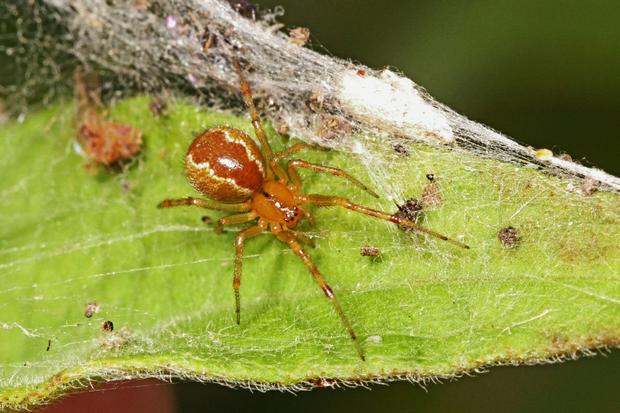A new paper delineating spiders’ roles within their colonies is intriguing because the spiders’ specialization (like caregiver or hunter-warrior) isn’t determined by size or physical structure, like with ants, but by personalities.
Aren't spiders loners? Most are, but a few species such as Anelosimus studiosus live in groups.
Colin Wright, a second-year PhD student in the University of Pittsburgh’s Department of Biological Sciences, along with Jonathan Pruitt, assistant professor of behavioral ecology at Pitt and Tate Holbrook of the College of Coastal Georgia, separated docile spiders from the aggressive by observing how much space they demanded from fellow colony members. Aggressive females demand more space than docile ones.
The team ran the spiders through a series of tests, examining their performance in colony defense, prey capture, parenting skills, and web repair. The aggressive cohort was great at defending the web, capturing prey, and repairing their web.
But they were awful parents.

Photo by Judy Gallagher
“We didn’t know what the docile spiders did,” Wright says. “Were they just freeloaders?” No, it turns out, they were the ones who were capable of rearing large numbers of offspring.
In a separate study, Pruitt also created all docile, all aggressive, and mixed colonies of spiders.
The docile colonies died out first. No one was there to protect them from “parasite” spiders that picked off their young and stole their prey. The all aggressors died off second, as they became cannibalistic toward their young.
The mixed group thrived.
Citation: Colin M. Wright,, C. Tate Holbrook, and Jonathan N. Pruitt, 'Animal personality aligns task specialization and task proficiency in a spider society', PNAS June 16, 2014 doi: 10.1073/pnas.1400850111


